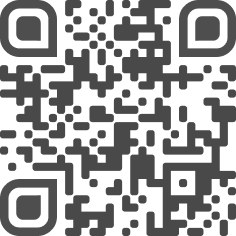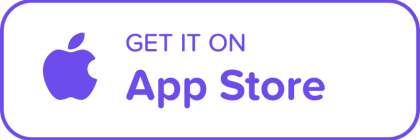Education is the key to personal and societal growth in this rapidly evolving world, while the literacy rate is an indicator of a country’s overall progress and development. For generations, the traditional education system, with its classrooms, textbooks, and in-person interactions, has been the root of knowledge dissemination. But in recent years, a revolutionary technological transformation has been advancing, one that is redefining education and the importance of digital education.
As we look over this transformation, it becomes essential to explore both the foundations of our traditional education system and the paradigm shift toward embracing digital education. Traditional education has relied on physical classrooms, face-to-face interactions, and curated collections of printed materials. As the digital revolution advanced, digital tools and online resources signified their potential to revolutionize traditional education.
According to UNESCO, the global literacy rate for adults aged 15 and above has risen from 86.3% to 90% in 2023. These statistics reflect the efforts of all educators, policymakers, and innovators worldwide in making education accessible to all. Behind these figures lies in-depth explanations of how digital literacy has played an essential role in this remarkable achievement. It’s a story about transformation, accessibility, and empowerment that begins with the transformative impact of digital technology in the classrooms and beyond.
Digital technology has played an important role in improving global literacy rates and bridging the gap in education. The use of digital tools and resources in classrooms has transformed the way education is delivered and received. Digital implementation in education has brought changes in the method of teaching and learning with increased interactive and engaging learning content. Consequently, it has become a powerful tool for promoting literacy on a global scale.
Digital Literacy
Today’s students are well-versed in digital technology and possess the skills to access, create, and share digital information. Digital Literacy is the ability to effectively use technology to find information, evaluate sources, create content, and communicate with others effectively. Digital Literacy is crucial in today’s digital age as it empowers individuals to participate fully in the digital world and make informed decisions in various aspects of their lives.
However, digital literacy needs to be renewed as digital technology evolves over time. As technology advances with time, new tools, platforms, and methods of communication emerge. Individuals must update their digital literacy skills to remain effective and informed in the digital era. This empowers individuals not only to use digital tools effectively but also to make informed choices in a rapidly changing digital landscape.
Impacts of Digital Education
Digital education has a significant impact on literacy rates. It has increased the accessibility, adaptability, interaction, and engagement of education for learners of all ages and backgrounds.
Accessibility
Digital literacy has effectively helped bridge the gap between different regions, making quality education equally accessible to learners worldwide. With the growing availability of the internet and electronic devices, learners from even remote areas of the world can easily access high-quality educational content, contributing significantly to improved literacy rates. Moreover, this digital accessibility has empowered learners for the development of skills that are required to thrive in an increasingly digital world.
Interactive and Engaging Learning Experiences
The use of multimedia and interactive content in digital education like visual content, simulations, and gamified learning experiences has proven to be highly effective in retaining information. These pedagogical tools have an extraordinary potential to simplify complex concepts, draw in learners’ attention, and get emotionally invested, thereby enhancing comprehension. Digital education helps to promote literacy by building a deeper understanding of subjects and creating a desire for continual study.
Enhanced Teacher-Student Collaboration
Digital literacy extends beyond traditional classroom boundaries, encouraging active and two-way interaction between students and their teachers. Online educational platforms, such as Jelajah Ilmu, facilitate communication channels, enabling students to ask questions, comprehend and break down complex information, and engage in discussions beyond the classroom. This enhanced interaction leads to an upgraded learning experience and effective literacy outcomes.
Global Exchange of Knowledge
One of the most impressive functions of digital education is its capacity to cross borders. Digital education goes beyond borders, allowing the exchange of knowledge and ideas on a global scale. Moreover, global exchange can make education inclusive of students from low-income and isolated communities. The digital students can connect with other learners and educators from different parts of the world, gaining diverse perspectives and insights. This experience expands your knowledge in various areas and promotes a global perspective.
By leveraging technology’s potential, there is always a scope to further advance literacy rates and empower learners with the skills and knowledge needed to thrive in an ever-evolving world. Thus, we can expect additional advances in global literacy rates and a more educated, powerful, and informed society as we continue to harness the potential of technology in education. It is essential that we prioritise the importance of digital education and ensure leaving no one behind on the path to creating more literate society.
Role of Jelajah Ilmu in Digital Education
In the world of digital education, many e-learning platforms are pioneering their way forward. Jelajah Ilmu is a complete academic delivery platform with the objective of making education accessible to learners while providing a wide range of interactive and engaging learning materials. From comprehensive interactive videos to quizzes and personalised progress tracking, Jelajah Ilmu ensures an integrated learning experience that empowers students to achieve their educational goals with ease and confidence.
By using technology, platforms like Jelajah Ilmu are playing an important role in shaping a more educated, powerful, and informed world. These platforms often utilize advanced algorithms and data analytics to tailor learning experiences to individual needs. As these platforms continue to evolve and innovate, they not only bridge educational gaps but also nurture empowerment and knowledge-sharing among learners worldwide.
As we celebrate Literacy Day, let’s take a moment to reflect on the path we’ve taken in promoting digital literacy. The journey towards improved global literacy rates continues, guided by the ever-evolving landscape of digital education. Together our collective efforts can craft a future where literacy knows no bounds, and where every individual can unlock their potential and uplift the global literacy rates.
For media inquiries, please contact:
Shahil Pradhan
Advanced Pedagogy
Marketing Lead
[email protected]




